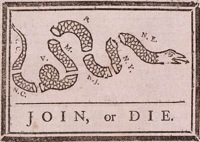Difference between revisions of "Confederation"
m (Text replacement - "http://" to "https://") |
|||
| Line 5: | Line 5: | ||
A confederation in [[modern]] [[political]] terms is a permanent [[union]] of [[sovereign]] [[states]] for common [[action]] in relation to other states. Usually created by [[treaty]] but often later adopting a common [[constitution]], confederations tend to be [[established]] for dealing with critical issues such as [[defense]], foreign affairs or a common [[currency]], with the central [[government]] being required to provide support for all members. | A confederation in [[modern]] [[political]] terms is a permanent [[union]] of [[sovereign]] [[states]] for common [[action]] in relation to other states. Usually created by [[treaty]] but often later adopting a common [[constitution]], confederations tend to be [[established]] for dealing with critical issues such as [[defense]], foreign affairs or a common [[currency]], with the central [[government]] being required to provide support for all members. | ||
| − | The [[nature]] of the [[relationship]] among the states constituting a confederation varies considerably. Likewise, the relationship between the member [[states]], the central [[government]] and the [[distribution]] of [[powers]] among them, is highly variable. Some looser confederations are similar to [ | + | The [[nature]] of the [[relationship]] among the states constituting a confederation varies considerably. Likewise, the relationship between the member [[states]], the central [[government]] and the [[distribution]] of [[powers]] among them, is highly variable. Some looser confederations are similar to [https://en.wikipedia.org/wiki/Intergovernmental_organization intergovernmental organizations], while tighter confederations may resemble [https://en.wikipedia.org/wiki/Federalism federations]. |
In a non-political [[context]], confederation is used to describe a [[type]] of [[organization]] which consolidates [[authority]] from other semi-[[autonomous]] bodies. Examples include sports confederations or confederations of Pan-European trades unions. | In a non-political [[context]], confederation is used to describe a [[type]] of [[organization]] which consolidates [[authority]] from other semi-[[autonomous]] bodies. Examples include sports confederations or confederations of Pan-European trades unions. | ||
| − | In Canada, the word confederation has an additional, unrelated meaning.[2] It refers to the [[process]] of (or the event of) [[establishing]] a federation. [ | + | In Canada, the word confederation has an additional, unrelated meaning.[2] It refers to the [[process]] of (or the event of) [[establishing]] a federation. [https://en.wikipedia.org/wiki/Canadian_Confederation Canadian Confederation] generally refers to the [https://en.wikipedia.org/wiki/Constitution_Act,_1867 Constitution Act, 1867] which initially united three colonies of British North America (Province of Canada, Province of New Brunswick and Province of Nova Scotia), and to the subsequent incorporation of other colonies and territories; Canada, however, is a federation and not a confederation, since it is a [[sovereign]] nation-[[state]]. |
==See also== | ==See also== | ||
*'''''[[Federation]]''''' | *'''''[[Federation]]''''' | ||
[[Category: Political Science]] | [[Category: Political Science]] | ||
Latest revision as of 23:43, 12 December 2020
A confederation is an association of sovereign member states, that by treaty have delegated certain of their competences to common institutions, in order to coordinate their policies in a number of areas, without constituting a new state on top of the member states. Under international law a confederation respects the sovereignty of its members and its constituting treaty can only be changed by unanimous agreement.
A confederation in modern political terms is a permanent union of sovereign states for common action in relation to other states. Usually created by treaty but often later adopting a common constitution, confederations tend to be established for dealing with critical issues such as defense, foreign affairs or a common currency, with the central government being required to provide support for all members.
The nature of the relationship among the states constituting a confederation varies considerably. Likewise, the relationship between the member states, the central government and the distribution of powers among them, is highly variable. Some looser confederations are similar to intergovernmental organizations, while tighter confederations may resemble federations.
In a non-political context, confederation is used to describe a type of organization which consolidates authority from other semi-autonomous bodies. Examples include sports confederations or confederations of Pan-European trades unions.
In Canada, the word confederation has an additional, unrelated meaning.[2] It refers to the process of (or the event of) establishing a federation. Canadian Confederation generally refers to the Constitution Act, 1867 which initially united three colonies of British North America (Province of Canada, Province of New Brunswick and Province of Nova Scotia), and to the subsequent incorporation of other colonies and territories; Canada, however, is a federation and not a confederation, since it is a sovereign nation-state.
